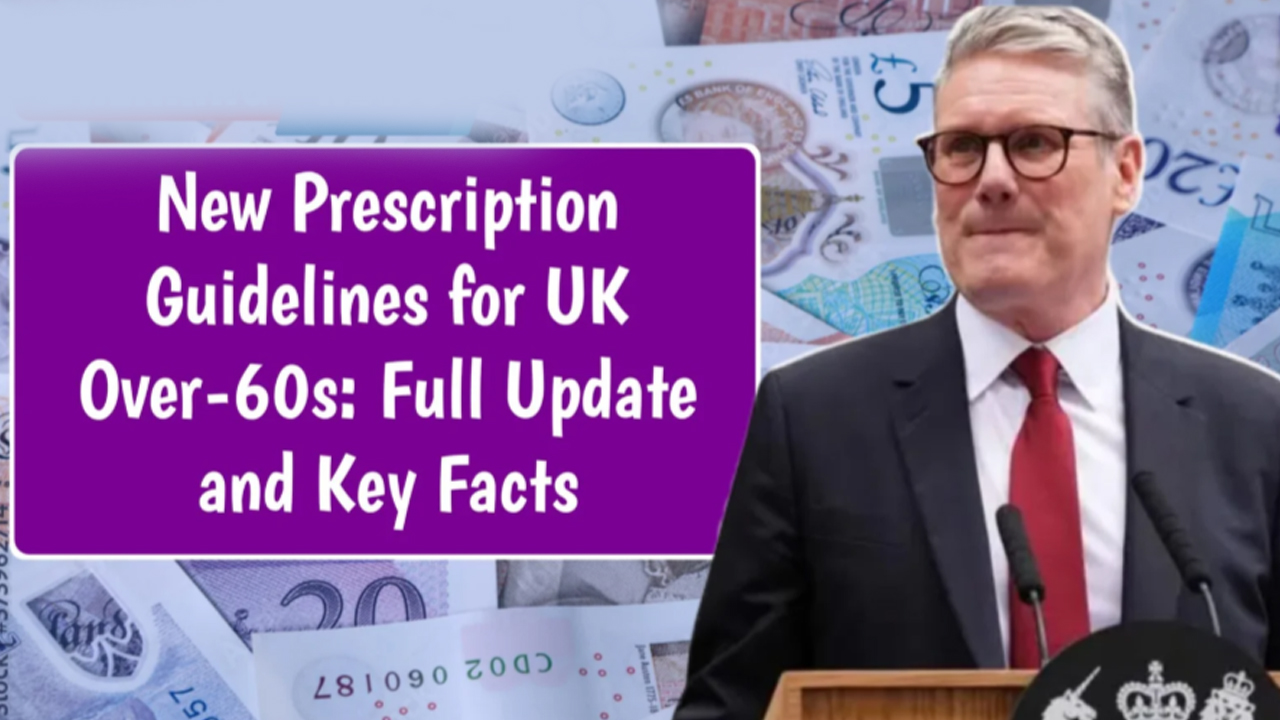The NHS prescription system is a cornerstone of UK healthcare, especially for the millions of residents over 60 who rely on regular medication for chronic conditions. With new guidelines for 2025 now in effect, it’s crucial for pensioners and older adults to understand how these changes will affect them.
These updates are designed to make the system more sustainable and efficient while enhancing patient safety. But what do they mean for you? Here’s a clear breakdown of the key changes you need to be aware of.
Stricter Checks on Free Prescription Eligibility
Historically, everyone over the age of 60 in England automatically qualified for free NHS prescriptions. The new guidelines introduce stricter checks to ensure this benefit is used correctly. 📋 While the fundamental principle of protecting older adults remains, the government is now implementing more rigorous verification for residency status, income-based exemptions, and pension credit entitlement.
This means you’ll need to make sure your personal and financial details are current with the NHS and Department of Health. If your information is not up to date, you might face unexpected charges.
The Rise of Digital Prescriptions
The NHS is accelerating its shift towards a fully digital system. For many over-60s, this means the traditional paper prescription is on its way out.
The NHS App is now the central hub for managing your health. Through the app, you can view your prescriptions, order repeat medications, and track their status. This move aims to streamline the process, reduce administrative errors, and cut down on waste. While the new rules encourage older adults to adopt these digital tools, support is available for those who are not comfortable with technology to ensure no one is left behind.
New Rules for Repeat Prescriptions
For patients with long-term conditions, repeat prescriptions are a lifeline. To reduce the millions of pounds of waste from unused medicines, the system for repeat prescriptions is becoming more structured. Instead of automatic renewals, you will now need to confirm your need for medication at set intervals, typically every six months.
This change requires more direct communication with your GP or pharmacy. Planning ahead and staying on top of these confirmations will be key to ensuring you don’t run out of essential medicines.
Enhanced Patient Safety Through Medication Reviews
To improve patient safety, the new guidelines mandate more frequent medication reviews for all patients over 60, at least once a year. These reviews, conducted by a GP or pharmacist, will check for potential side effects and drug interactions, assess if each prescription is still necessary, and explore whether a cheaper or safer alternative is available. This proactive approach benefits both patients and the NHS by improving health outcomes and saving costs.
Financial Assistance is Still Available
Even with the new eligibility checks, various schemes for financial assistance are still available. If you no longer automatically qualify for free prescriptions, you may be eligible for support through the NHS Low Income Scheme or a Prescription Prepayment Certificate (PPC). A PPC is a cost-effective option if you need multiple prescriptions per month, as it covers unlimited prescriptions for a set fee over three or twelve months. The government is also investing in outreach programs to help older adults navigate these options and avoid treatment interruptions.
People Also Ask
- How do I get a free NHS prescription? In England, you are automatically entitled to free NHS prescriptions if you are 60 or over, under 16, or a full-time student aged 16 to 18. You may also be exempt if you are pregnant, have certain long-term medical conditions, or receive specific benefits like Income Support or Pension Credit Guarantee Credit. For those with a low income, the NHS Low Income Scheme can provide full or partial help with prescription costs.
- How do new NHS prescription rules affect pensioners? The new rules introduce stricter eligibility checks for free prescriptions, encourage the use of digital services like the NHS App, and require more frequent medication reviews and regular confirmation for repeat prescriptions. While designed to improve efficiency and safety, these changes mean pensioners must be more proactive in managing their prescriptions and staying up to date with their health records.
- Is the free prescription age changing in the UK? The free prescription age in England currently remains at 60. While there have been government consultations on aligning the upper age exemption with the State Pension age (currently 66), the government has decided to keep the exemption age at 60 for now.
